The function of our digestive system is digesting food and absorbing the necessary nutrients.
It also helps our body to get rid of the waste materials and toxins. Normally, the gastrointestinal tract performs the function of digestion well, however, sometimes people feel that their stomach is not digesting food properly. Based on survey reports, about 70-80 million people across the world are suffering from some type of digestive problem.

Symptoms of Poor Digestion
There are many symptoms of digestive problems:
- Constipation
- Fatigue after eating
- Pain in abdomen
- Brittle nails
- Vomiting
- Diarrhea
- Food intolerance or Allergies
- Bloated stomach
So, what are the factors that cause the poor digestion?
- Enzyme Deficiency
There are many factors that can affect your body’s ability to produce an optimum enzyme level in order to maintain good health. These can be due to unhealthy diet, air pollution, emotional stress, lack of sleep and more. Enzyme deficiency is the root of many digestion problems in our society. Your digestive enzymes, which are mostly produced in your pancreas, help break down the food into nutrients so that your body can absorb them. Enzyme deficiency results in poor digestion and poor nutrient absorption – this creates a variety of gastrointestinal problems, including constipation, bloating, cramping and heartburn.
Get know for our solution – LiveZymes
- Gut Flora Imbalance
Our intestinal tract is full of various species of bacteria and yeasts that help digestion, kill harmful and pathogenic infections as well as helping to produce many vitamins and other chemical substances needed for our health. These organisms that live in our intestines are called the intestinal flora. When the good or friendly flora is missing or in low concentration, it allows other harmful pathogens to multiply in the intestine. This affects the digestion of food and can cause many other symptoms since the pathogens create toxins that are absorbed into the body.
The causes of intestinal flora imbalance can be due to illnesses, improper diet, antibiotic use, other medications, food chemicals and more.
Get know for our solution – HP-FloraGut
- Higher Stress
You don’t need a doctor to know that stress plays a major role in the health of our gut (and you can read here more on how stress affects your body in general). The biochemical changes that occur when we are stressed have a significant and immediate impact on our gut function. When the brain feels very stressed, it releases various hormones that cause changes to the digestive system in the short term, such as lack of appetite, heartburn, nausea, diarrhea and stomach pain. In the long term, prolonged stress can worsen chronic diseases such as irritable bowel syndrome (IBS) and heartburn.
- Heavy Metal Toxicity
The presence of toxic metals, such as mercury, aluminum, cadmium, arsenic, lead, and nickel, have a damaging effect on the intestinal flora for some people. These metals flood the environment and can be found in cookware, household cleaners, cosmetics, air pollution, insecticides, herbicides and smoking that causes cadmium poisoning. They invade our body and cause or contribute to a long list of diseases.
To help fight heavy metal toxicity you can use clay to detox your body or consume foods rich in pectin fibers (such as apples). Those fibers bind cholesterol and heavy metals to cleanse blood and intestines. Cilantro or coriander also aids our body to get rid of mercury and other heavy metals that end up in our bloodstream. Also, chlorophyll rich-foods are food in this case.
- Magnesium Deficiency
Magnesium deficiency causes, among many other things, constipation and digestive-related disorders. Your body uses this important mineral to aid in the digestion process. Without magnesium, your body cannot properly digest foods, as it activates enzymes that let the body digest and break down food into smaller pieces for energy. It also works to produce and transport energy during digestion.
You may not get enough magnesium in your diet. Having the right amount of magnesium in your body is important to your digestive and overall health, so make sure to include magnesium-rich foods, such as dark green leafy vegetables, nuts, seeds, whole grains, beans, lentils, avocados, bananas and dried fruits.
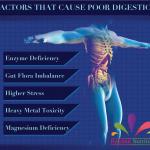
Related Topics
Do we need both Prebiotics and Probiotics?
5 Natural Treatments of Cold and Flu
Gastric Pain: Location, Symptoms and Natural Remedies
Is Your Digestive System Working Well?
What is Irritable Bowel Syndrome (IBS)?
How Probiotics can help you Prevent and Fight Allergies
Please Pay Attention! Eating Probiotics like These Ways are not Effective
Smart Food Choices for Working Adults
Papaya Enzymes (Papain)- Natural Remedy For Heartburn
Aren’t There Enough Enzymes in the Food We Eat?
12 Foods That Contain Natural Digestive Enzymes
10 Interesting Facts About Our Digestive System
LiveZymes – Digestive Enzymes From 12 Different Food & Fruits

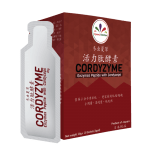
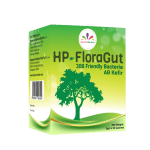
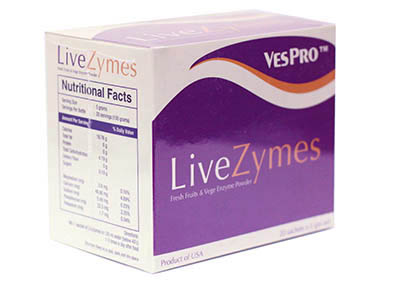



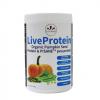

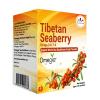

Facebook Comments